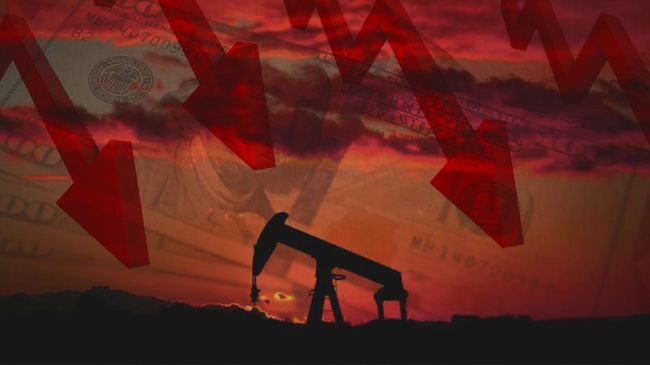Jakarta, CNBC Indonesia – The price of world crude oil has fallen again this week, back to below US $ 40 per barrel. Brent oil even touched the lowest level in more than 3 months.
According to Refinitiv data, the price of Brent oil so far this week has fallen 6.3% to US $ 39.27 per barrel, the lowest level since June 15. Meanwhile, West Texas Intermediate (WTI) crude oil fell nearly 8 percent to US $ 37.05 per barrel.
Crude oil is an indicator of the health of the global economy. When the price falls, it means that demand is sluggish due to slumping economic activity. When economic activity declines for a long time, there will be a recession.
The third quarter of 2020, which has just ended, can provide an idea of whether the world is sinking into recession, or has managed to rise. In the second quarter, many countries experienced a recession, including the United States (US), the Adi Kuasa country with the largest economy in the world.
In the second quarter, the US Gross Domestic Product (GDP) contracted 31.1% on an annualized basis (quarterly annualized), while in the first quarter of 2020 it contracted 5%.
European countries have also fallen into the brink of recession, the cause is the same, the corona virus disease pandemic (Covid-19) has caused the government to limit the activities of its citizens, even carry out quarantine (lockdown) territory a few months ago. When this was done, the demand for crude oil for fuel or industry would have fallen dramatically.
The bad news is that the Covid-19 cases in Europe have increased again recently, of course there is a risk of slowing down the economic recovery and triggering a prolonged recession. Demand for crude oil is again under threat.
“The increasing number of Covid-19 cases continues to raise the energy demand alarm,” said Avtar Sandu, senior commodities manager at Phillip Futures, quoting Reuters.
When demand is under threat, supply actually increases, complete with the suffering of crude oil.
The results of a Reuters survey showed that supplies from the Organization of the Petroleum Exporting Countries (OPEC) were wearing 160,000 barrels per day in September, compared to the previous month.
The increase was due to increased oil production in Libya and Iran, 2 OPEC members who did not participate in the production cut agreement between OPEC and Russia and several other countries, or what is called OPEC +.
CNBC INDONESIA RESEARCH TEAM
(pap / pap)
– .


